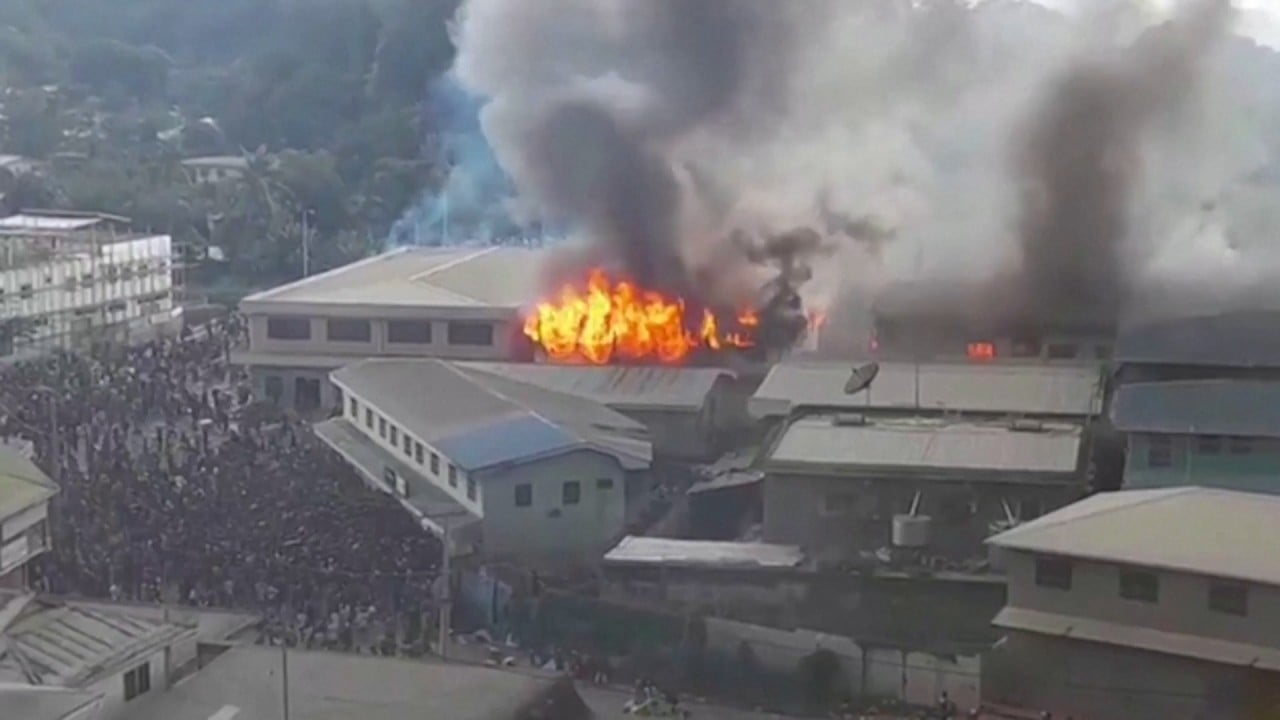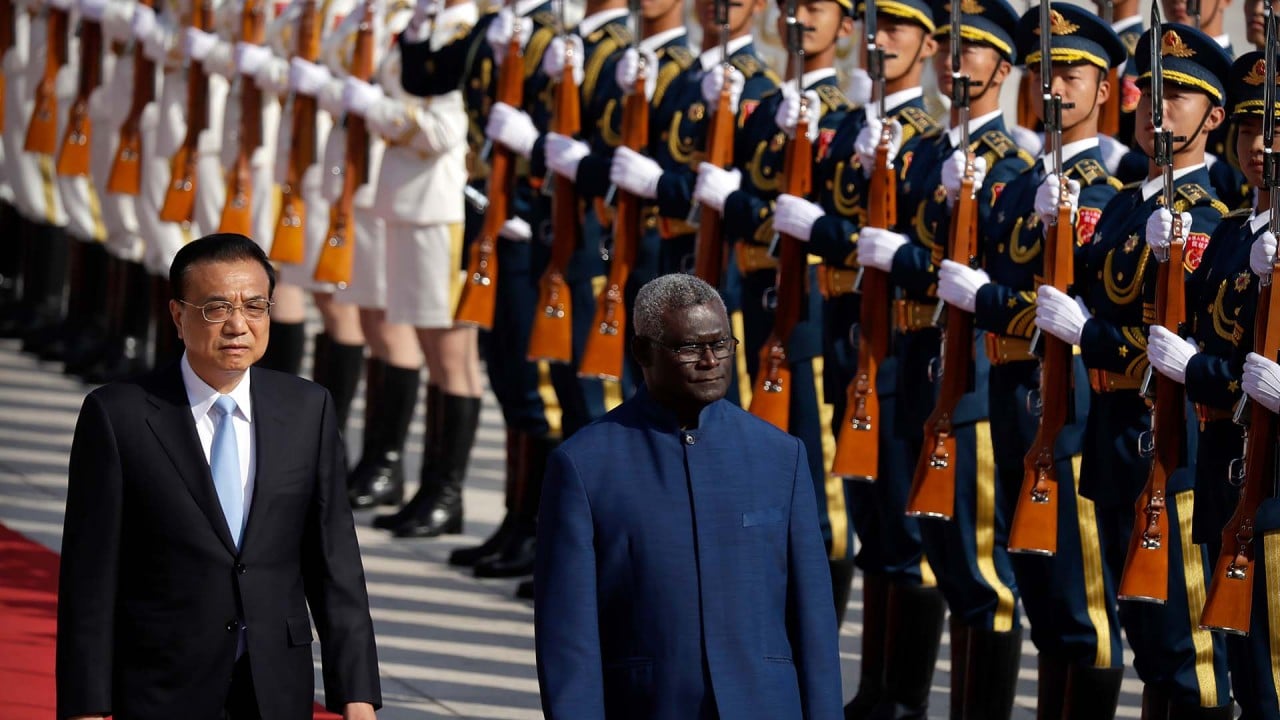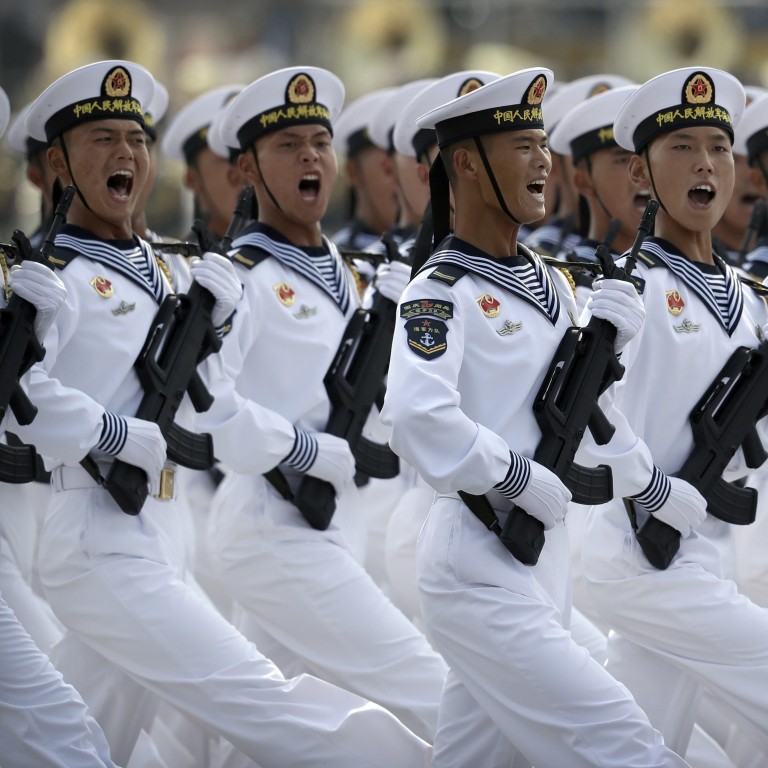
China ‘very likely’ to deploy troops in Solomon Islands, Australian minister says
- Home Affairs Minister Karen Andrews made the remarks in an interview on Wednesday, despite Solomon Islands PM Manasseh Sogavare’s repeated assurances
- It came as Australia’s spy chief said Canberra was concerned Chinese police deployed to islands could use ‘ruthless’ techniques of the sort used in Hong Kong
Asked how realistic it was that China would request to put troops in the Solomon Islands within the next year, Home Affairs Minister Karen Andrews told 4BC radio it was “very likely”. “It is likely that will be the path that China will be taking in the Pacific region,” she said.
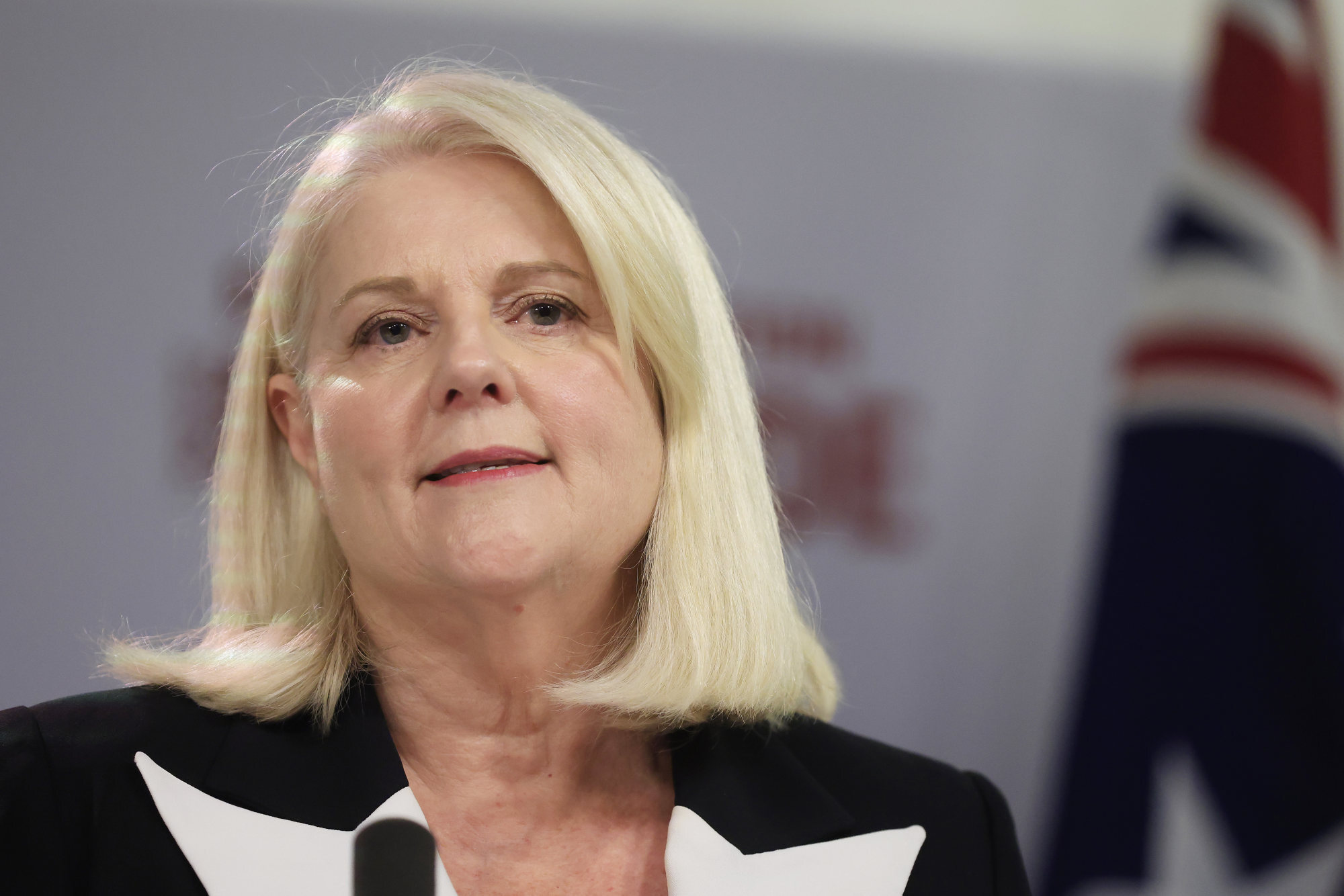
The leaked draft contained provisions allowing for Chinese security and naval deployments to the Solomon Islands, including language stating the “forces of China” would be empowered to protect “the safety of Chinese personnel” and “major projects”.
Australia’s PM Morrison accuses China of ‘interfering’ in the Pacific
Andrews also questioned the timing of Beijing’s announcing the deal in the run-up to the May 21 Australian federal election, which has been upended by debate about foreign policy and Pacific diplomacy.
“Beijing is clearly very aware that we are in a federal election campaign here at the moment,” she said. “We talk about political interference and that has many forms.”
Andrew Shearer, the director general of the Office of National Intelligence, travelled to the Pacific islands nation last month in a failed attempt to persuade Sogavare not to sign the pact with China.
He told the Raisina Dialogue conference in New Delhi on Tuesday evening that Australia responded within eight hours to Sogavare’s request in November for police assistance to quell riots.
Deployed Australian police sit under the command of the Royal Solomon Islands Police Force through a bilateral security treaty.
Australia is concerned about the impact of Chinese police on unity of command in security operations, he said.
“In such a fragile, volatile country Chinese policing techniques and tactics that we’ve seen deployed so ruthlessly in Hong Kong, for example, are completely inconsistent with the Pacific way of resolving issues and could incite further instability and violence in the Solomon Islands,” he said.
Weeks out from the election, Prime Minister Scott Morrison’s conservative Liberal Party is on the back foot on national security, accused by the Opposition Labor Party of bungling diplomacy in the Pacific and making Australia “less secure”.
University of Sydney professor Simon Jackman, who studies the major issues for Australian voters in elections, said a perceived threat from another country has not been an election focus since the Cold War. “For a younger set of voters there is nothing [like that] in living memory,” he said in an interview.
Behind in the polls, Morrison’s administration had pointed to its stances on China as a reason to support his party, and claimed without evidence that Beijing was backing the Labor opposition.
Australian opposition to set up Pacific Defence School if it wins election
“We know that the Solomons is a strategic destination. We know during World War Two some of the fiercest and most important battles for control of the Pacific occurred there,” opposition Labor leader Anthony Albanese said after Beijing announced it had signed the security pact. Labor seized on Deputy Prime Minister Barnaby Joyce’s likening the situation to the Cuban Missile Crisis.
“Australians understand this is a time of risk,” Labor’s foreign affairs spokeswoman, Penny Wong, told reporters in Darwin.
“They are playing politics with the Pacific, and the only ones who are benefiting from Labor’s attacks on the [Australian] government is the Chinese government,” he told reporters, campaigning in Queensland.
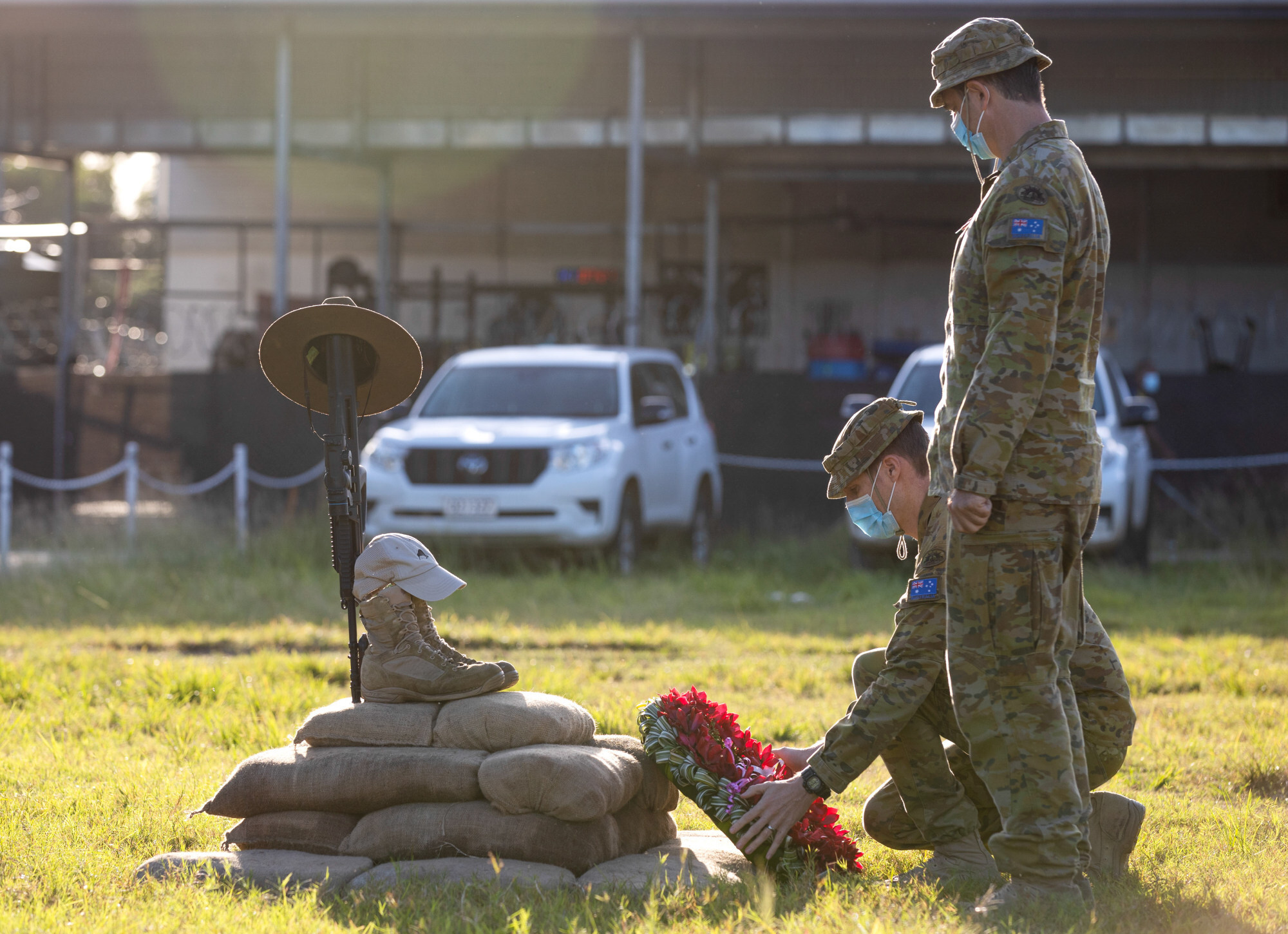
Australia’s former top diplomat for the Indo-Pacific, Richard Maude, said that the Labor and Liberal parties are “throwing hand grenades at each other on China”, but that Labor’s promise to reinvest in diplomacy was a substantial policy difference.
“On the Solomons, we will never know. Pacific island governments have their own agency … [Morrison’s] coalition is actually spending record dollars in the Pacific, despite Labor criticism,” said Maude, executive director of Asia Society Australia.
A Newspoll for The Australian newspaper this week showed centre-left Labor maintaining its 53-47 lead on a two-party preferred basis against the conservative Liberal-National coalition.
John Blaxland, a professor of international security at the Australian National University, said Morrison’s government had tried to make China a priority issue for voters, but it had backfired. “The news from Solomon Islands will have blunted its utility for the coalition,” he said in an interview.
Pacific states disenchanted with Australia, China, warily welcome US push
Whether Australian voters care as much about a resurgent China as the politicians on the campaign trail remains an open question.
A 2001 election held against the backdrop of the September 11 terrorism attacks saw the Liberal government returned to office invoking fear of terrorism to toughen borders – a policy area Labor has learned to mirror.
Apart from this, Jackman says, national security has rarely been a big factor for voters. He added that there was “barely an iota of difference” between the major parties on China policy.
Polls this year have shown the economy, climate change, housing affordability and health were bigger issues for voters, he said.

.png?itok=arIb17P0)

